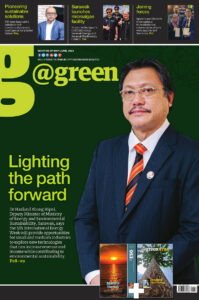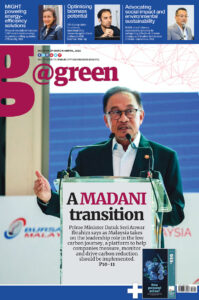Water security is national security
Engagement and partnership are the way forward for sustainable water management
Being seen as an unlimited resource, access to clean water is often taken for granted by many people. While the earth may not run out of water, it is hard to guarantee that future generations will have sufficient potable water access.
Global Environment Centre (GEC), during the International Greentech & Eco Products Exhibition & Conference Malaysia (IGEM) 2021, held a virtual discussion titled ‘Water resources management: Redefining sustainability’, which sought to enhance Malaysians’ understanding of local water resources and sustainable water management practices.
“We hope it sheds light on how businesses can integrate sustainable water management within their operations while engaging meaningfully to fulfil their social and environmental obligations,” said Faizal Parish, GEC Director and the moderator of the session.
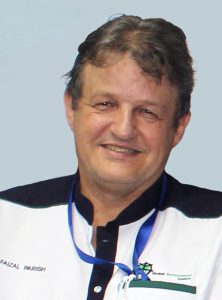
The discussion featured Dr Kalithasan Kailasam (Manager of GEC’s River Care Programme), Dato’ Ir. Nor Hisham Mohd Ghazali (Director-General of the Department of Irrigation and Drainage Malaysia) and Renuka Indarajah (Trustee Member of SPARK Foundation and Corporate Affairs & Legal Director of Heineken Malaysia Berhad).
A new perspective of water
Kalithasan highlighted that water problems were usually caused by economic activities, climate change, population, competition & conflicts, water use and pollution. He said in 11 years, people might not have clean water due to these activities.
He then talked about Integrated Water Resources Management (IWRM), a process that promotes the coordinated development and management of water, land and related resources.
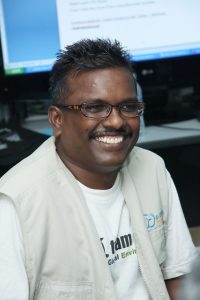
IWRM is done to maximise economic and social welfare equitably without compromising the sustainability of vital ecosystems. It requires a cross-sectoral, multi-level approach within each river basin.
Kalithasan believed Malaysians needed to see water from a new perspective.
“First, water is infinite, but potable water is not. Second, when we’re talking about water, we’re talking about Gross Domestic Product (GDP) because water also contributes significantly to the country’s GDP.
“Third, water is a social commodity. Then, water is fundamental for all 17 Sustainable Development Goals (SDGs), and we’re also talking about Malaysia’s obligation to global (sustainability) reporting.
“The most important thing is we need to treat water as a national security.”
He then shared about the National Agenda on Water Sector Transformation 2040 (WST 2040), which aimed to transform the national water sector from one that empowered the economy to one that was dynamic and able to contribute significantly to the country’s GDP.
The plan would directly enhance the employment opportunities in the water sector and forge the nation’s science, technology, and innovation development.
The programme manager then acknowledged the efforts done by stakeholders but emphasised the need for a more coordinated work in sustainable water management.
Addressing Malaysia’s water challenges through IRBM
Nor Hisham explained water security was an acceptable quantity and quality of water that can sustain society’s livelihoods, well-being and socio-economic development.
“In water security, we are trying to ensure that we are protected from water-borne pollution and water-related disasters, ensuring that the ecosystems are preserved or conserved, and lead us to a peaceful society and a better living environment.”
He then emphasised that a sustainable water resources management strategy is vital to minimise potential conflicts in economic development, social well-being, and ecosystems conservation.
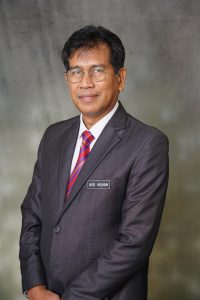
Speaking on the interconnectivity of water resources, economy and people, Nor Hisham said the demand and importance of these three elements must be balanced in the water management strategy.
“Despite the rainfall that we get, we still need to be careful in managing water resources to meet future water challenges,” said Nor Hisham, further adding that Malaysia as a developing nation is facing numerous issues and challenges to build a water-secure country.
The deputy-general then laid out some of Malaysia’s water challenges, which are:
- Poor enforcement in handling pollution.
- Weak and non-uniform State Laws.
- Non-integrated management and planning.
- Water is not the top priority in development.
- Inadequate knowledge and skills in water management.
- Absence of water policy commitments by agencies and local government.
He said these challenges must be addressed with proper water management tools.
He then shared one of the solutions for the water management issue, the Integrated River Basin Management (IRBM). According to Nor Hisham, IRBM involved many components such as planning, financing, institution, legislation, enforcement, preventive, curative, and awareness.
“IRBM lays the foundation for connectivity between resources, economy and people. IRBM must be owned by all. Everyone has a role to play in it, be it a private or public entity.”
Sustainable water use from a corporate’s perspective
Renuka then shared Heineken’s experience in its sustainable water management journey. She revealed that the company is moving towards healthy watersheds globally by setting four targets.
These targets include fully balance water used of Heineken’s products in water-stressed areas by 2030, maximise, reuse and recycle in water-stressed areas by 2030, treat 100 per cent of wastewater of all breweries by 2023 and reducing average water intake to 2.6 hl/hl in water-stressed regions and 2.9 hl/hl worldwide by 2030.
“I’m pleased to share with you that Heineken Malaysia Berhad has already achieved two out of these four global targets well ahead of time,” said Renuka.
She shared Heineken’s water strategy called ‘Every Drop’, which includes water stewardship, water circularity and water efficiency.
“These three principles combined in this pyramid to ensure that we move towards a healthy watershed. Water efficiency is all about minimising the water used in our production. Water circularity is about maximising, reusing and recycling of treated water and water stewardship to balance the water use in our products fully.”
One of Heineken’s critical initiatives regarding water efficiency is reusing treated wastewater for non-potable use. As for water circularity, the organisation’s wastewater is treated beyond the standards of the Department of Environment.

“We aim to maximise water circularity through recovery, reuse and recycling.”
She then explained that water stewardship is the water use that considered social, environmental and economic benefits. It was achieved through a stakeholder-inclusive process that involves site and catchment-based actions.
Renuka emphasised that the success factors for the organisation were the awareness creation effort which changed the mindset of people, the empowered local communities who took charge of their water source and Heineken’s collaborations with multiple stakeholders.
“Water is a finite resource. There are water shortages felt across the globe and every one of us, corporates in Malaysia, needs to take care of our watersheds.
“There’s much work to be done to preserve our watersheds, to ensure the long-term supply of water to our industries, to minimise destruction in supply and to ensure continued smooth operations of all our businesses.”

